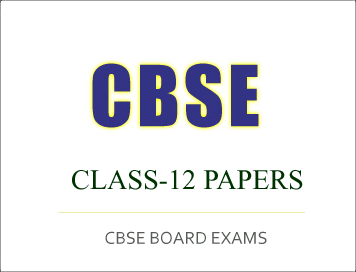
CBSE Class-12 Exam 2017 : Delhi Scheme
Question Paper, Human Rights And Gender Studies
CBSE Class-12 Exam 2017 : Human Rights And Gender Studies
1. Where was the first Human Rights Commission appointed in India ?
2. Mention any two demands made by Women’s Movements during the Post-Independence era.
3. Write any two barriers that need to be addressed if gender mainstreaming has to be done in education.
4. How is the term ‘Dowry’ defined by the Dowry Prohibition Act, 1961 ?
5. What is meant by equality of fair opportunity ?
6. How does social and cultural environment effect human life ?
7. Mention the four general principles categorized by the Child Rights Convention that play important role in achieving all other rights.
8. What are compensatory remedies ? Give an example.
9. What is the importance of issue based movements in empowering women ?
10. “Gender mainstreaming has moved beyond empowerment of women.” Examine the statement.
11. Explain the remedies provided by the Article 32 of the Constitution of India.
12. “The basic concepts of Human Rights are embedded in all religious teachings.” Explain.
13. Describe the main reasons that lead to natural disasters and forced displacements.
14. Differentiate between Women Studies and Gender Studies.
15. Explain any four major changes that have been sought by women through social movements.
16. “India still comes under the category of having low sex-ratio in the world.” Support the statement by explaining any four forms of crime that are responsible for this situation.
17.Explain the objectives of the Minimum Wages Act, 1948. How is it important for women ?
18. Assess the positive and negative role of media in fostering gender equality.
OR
Explain the concept of gender and development. Differentiate between Libertarian and
Communitarian views on development of women.
Courtesy: CBSE